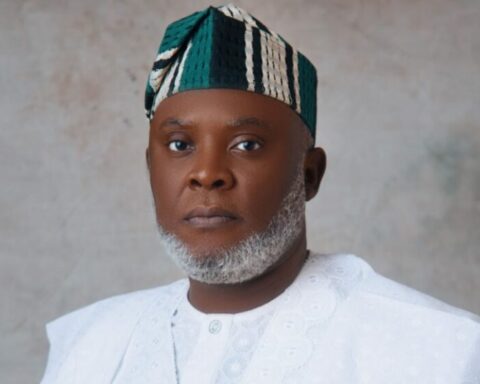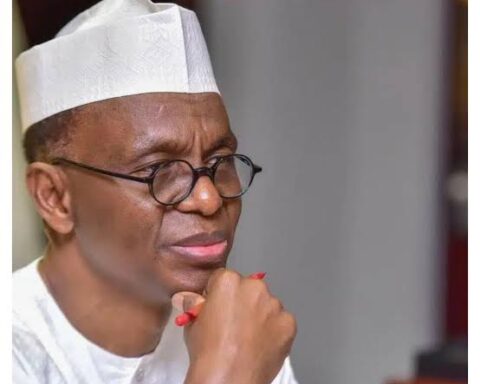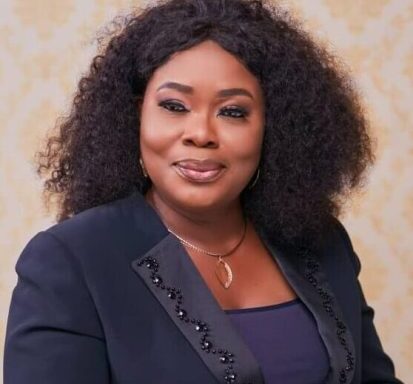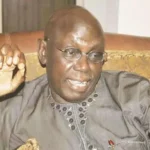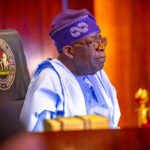By Emmanuel Gandu
EXCERPTS
“I am in politics to baptise politics and make it pure.”
– Fr. Moses Adasu
“…….he must chose. He cannot stand at the altar of Christ and the altar of politics at the same time.” “A priest is called to be father to all, not a partisan figurehead for a few political godfathers, ….you lose that fatherly neutrality. You become a party man, fighting dirty political battles, and dragging the dignity of the priesthood into the mud.”
“Unfortunately, the increasing level of poverty, hunger, unemployment, insecurity, and agravated by the corrupt political class is surely serving not only as an attraction but as a “Holy” bait for the clergy to continue to throw their hat in the political ring.”
“It therefore remains to be seen whether the clergy will continue to abandon the pulpit for the podium or adhere to Jesus’ call to give to Caesar what is Caesar’s and to God what is God’s.”
INTRODUCTION
Contemporary and emerging trends indicates that priests are increasingly using the pulpit to engage in partisan politics to the extent that they not only join politics but hold political office as well.
This obviously goes against their sacred calling. Although political preaching and participation is religious obligation found in Christian teachings and a positive response to social change, on the other hand, the clergy faces some challenges of social transformation of the society without their involvement in politics.
Today, clergymen seem to be tired of preaching “change” to the politicians from the pulpit. They want to enforce that change they so desire through their active political involvement. They want to, according to late Fr. Moses Adasu, “I am in politics to baptise politics and make it pure.”
THE ISSUES, THE DEBATE
Politics and public office had long become such an attractive phenomenon that the clergy is never immuned from its glamour, the glare and “klegg” lights, and the other good things that come with politics.
This development is generating some level of debate and interests among the public. Some argue that politics is such a dirty game that the clergy should stear clear of. While others believe that it’s just right that the clergy is better placed to sanitise the dirty waters of politics, some insist the clergy should keep away from the mud.
Citing Jesus’ reply when asked on who to pay tax to, some opinion holders would rely on that precedent as they believe that the things of Caesar should be left for Caesar while those of God be left for God.
And yet, to others, the participation of the Catholic clergy in political and public office is an aberration.
Other social commentators like Sir. D.L Efeturi, a Knight of St. John International (KSJI) and Rev. Fr. C.J Mbaeri did not mince words in calling the spade in the recalciltrant actions of the clergy involved in politics and public office.
According to Efeturi, “……Fr. Hyacinth Alia must choose. He cannot stand at the altar of Christ and the altar of politics at the same time.”
On his part, Rev. Fr. C.J Mbaeri reiterates that “A priest is called to be father of all, not a partisan figurehead for a few political godfathers…., you lose that fatherly neutrality. You become a party man, fighting dirty political battles, and dragging the dignity of the priesthood into the mud.”
VOICE OF THE CATHOLIC CHURCH ON THIS DEBATE
Going further, the Roman Catholic Church discourages and restricts the clergy from holding secular, civil, political, or public office.
The Code of Canon Law speaks with divine precision. Canon 285 §3 forbids clerics from assuming public offices that involve the exercise of civil power. Canon 287 §2 advises priests to refrain from active participation in political parties unless a grave necessity demands it, and only with the judgment of ecclesiastical authority. Canon 289 cautions clerics against roles foreign to their state of life. These canons are not archaic formalities. They are walls of protection, fences to keep the sacred from becoming profane.
GLOBAL SAMPLE OF CATHOLIC CLERGY PARTICIPATION IN POLITICS
(1) Rev. Fr. Moses Orshio Adasu :
Born 1945 in Benue state Nigeria, Fr. Adasu made the popular statement of baptising politics – “I am in politics to baptise politics and make it pure.”
The ordained Catholic priest was elected governor of Benue state in January 1992, he had 2 Masters degrees, one from St. John’s University New York City (1975 – 1976), and the other from Catholic University of America Washington DC (1976 – 1978).
Adasu was a Senior Inspector of Education at the Benue State Ministry of Education Makurdi, taught in secondary and teachers colleges, taught in Colleges of Education in Akwanga and in Katsina-Ala. He was a member of the Christian Pilgrims Welfare Board, Benue state Prerogative of Mercy, member Advisory Council of the Episcopal Commisdion on African Traditional Religion, Chairman of the Prestbyterial Council, Dean of Makurdi Deanery, Vicar General Diocese of Makurdi.
Fr. Adasu founded the Benue State University. He was appointed a member of the Independent Corrupt Practices and other Related Offences Commission (ICPC) in 2001.
Fr. Adasu rejoined politics in 2003 where he contested for the second time the govership ticket of Benue state under the Aliance for Democracy (AD) where he challenged George Akume of the Peoples Democratic Party. Adasu lost to Akume.
Rev. Fr. Moses Orshio Adasu died in November 2005, after which Benue State confered on him a post humous doctorate degree.
(2) Jean-Bertrand Aristide of Haiti :
Aristide was President of Haiti from 1991 – 1996 and again from 2001 – 2004).
He started off as the voice of the people and a liberation hero. But how did it end? Violence, corruption, human rights abuses everywhere, making him become a complete moral failure.
Unfortunately, the same Salesian Congregation that trained him had to suspend him from priestly ministry just to save their face from disgrace and shame.
(3) Fulbert Youlou in Congo-Brazzaville :
Fr. Fulbert Youlou became -:
• Mayor of Brazzaville in 1956.
• Prime Minister of the Republic of Congo from 1958 – 1959
• President of the Republic of Congo from 1960 – 1963. Another priest who felt politics was his next pulpit, Fr. Fulbert resigned from the priesthood, became President, and quickly became part of the country’s political crisis. His leadership was full of ethnic divisions, oppression, and bad governance, until the people rose and protested strongly, which led to the collapse of his government. The people chased him out like a thief in the night.
(4) Jozef Tiso of Slovakia:
Jozef was –
• Minister of Health of Czechoslovakia 1927 -1929
• Minister of Interior of Slovakia
• Prime Minister of Slovakia 1938 – 1939
From 1939 to 1945.
• Fr. Jozef Tiso was president of the First Slovak Republic 1939 – 1945.
Slovakia was a satellite state of Nazi Germany.
He was another priest who thought political power would help him serve people better. During the Second World War, instead of standing for justice and human dignity, he collaborated with the Nazis, facilitated the deportation of Jews, and ended up being convicted, facing treason and the death penalty by hanging for war crimes against humanity. It was not only failure but fatal disgrace for his people and the Church.
(5) Fernando Lugo of Paraguay :
A former Catholic bishop who served as President of Paraguay from 2008 to 2012. Lugo, once revered as the “bishop of the poor,” entered politics with high hopes of reform. However, his presidency quickly unravelled. He was impeached in June 2012 after just four years in office because parliament cited his failures on security, nepotism, and land policy during a violent clash between police and landless farmers that resulted in seventeen deaths. Even beyond his removal from office, Lugo’s legacy was marred by serious personal scandals, which undermined his moral and political credibility. Lugo’s fall from a beloved liberation bishop to an impeached president burdened by scandal serves as a strong cautionary tale of what can happen when clergy abandon spiritual leadership for political ambition.
(6) Rev. Fr. Hyacinth Alia of Nigeria :
Elected governor of Benue state in 2023, Fr. Alia abandoned his calling to embrace political leadership. However, it has proven that wearing a cassock does not automatically translate to good governance. Since he assumed office, his administration has been marked by confusion, lack of clear direction, and a growing insecurity on the part of the suffering masses. While he has made progress in clearing salary arrears and ensuring regular payment of civil servants and pensioners, however, basic security remains a nightmare, with attacks on innocent communities continuing almost unchecked. Despite repeated attacks on rural communities and the growing number of internally displaced persons, there is little evidence of any coordinated, sustained response from his administration to address the violence. He keeps telling us that he knows those behind the attacks, and that they are in Abuja, but he hasn’t taken any measure to address this critical issue.
Also, his handling of the massacre of June 2025 and the widely condemned incident where schoolchildren were left standing in the rain to welcome the President during a condolence visit to Benue state has raised serious questions about his sensitivity and leadership judgment. For someone who once stood at the altar preaching justice and compassion, many are beginning to wonder if political office was ever the right place for him.
CONCLUDING ARGUMENTS/REMARKS
Interestingly, the level of interest and participation in politics/public office by the clergy from other denominations like the pentescostals is increasingly encauraging the Catholic clergy to join the bandwagon.
The likes of Pastors Tunde Bakare, Chris Okotie, Osagie Ize-Iyamu, Yemi Osinbajo, and Pastor Umo Eno readily comes to mind.
Whether the entrance of these “men of God” into the political arena have helped in any way to sanitise the run of politics/public office in Nigeria is another subject of debate for another day.
However, the increasing level of poverty, hunger, unemployment, and insecurity in Nigeria and many third world countries, which unfortunately is agravated by the corrupt political class is surely serving not only as an attraction but as a “Holy bait” for the clergy to continue to throw their ‘hat’ in the political ring.
And for this long that we’ve seen the participation of pastors in the political arena, little or nothing has impacted the life of the ordinary man positively.
Therefore, when the Catholic church forbids the clergy from politics, when the Catholic Church speaks today, she is speaking from experience and deep scars. The Church doesn’t want another chapter of scandal, confusion, and public disgrace. This is why the Code of Canon Law (Canon 285 §3) couldn’t be clearer: “Clerics are forbidden to assume public offices which entail a participation in the exercise of civil power.” A priest is called to be father to all, not a partisan figurehead for a few political godfathers. When you become governor, you lose that fatherly neutrality. You become a party man, fighting dirty political battles, and dragging the dignity of the priesthood into the mud.
And if, for any reasons, the judgement of ecclesiastical authority permits any clergy to participate/hold public office as stated in Canon 287, where, as we have noticed, some priests take this advantage to jump into the murky waters of the political pond.
Here then lies the paradox – the absence of clear cut stand – the conflict of interpretation especially for lay people and other on-lookers.
It there remains to be seen whether the Catholic clergy will continue to abandon the pulpit for the podium or adhere to Jesus’ call to give to Caesar what is Caesar’s and to God what is God’s.
Time will tell.
Peace 🙏
Follow us on all social media platforms @dailyquery for news and analyses around the globe.


